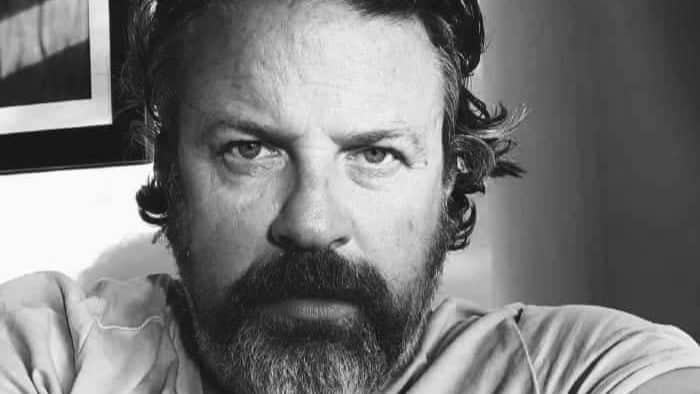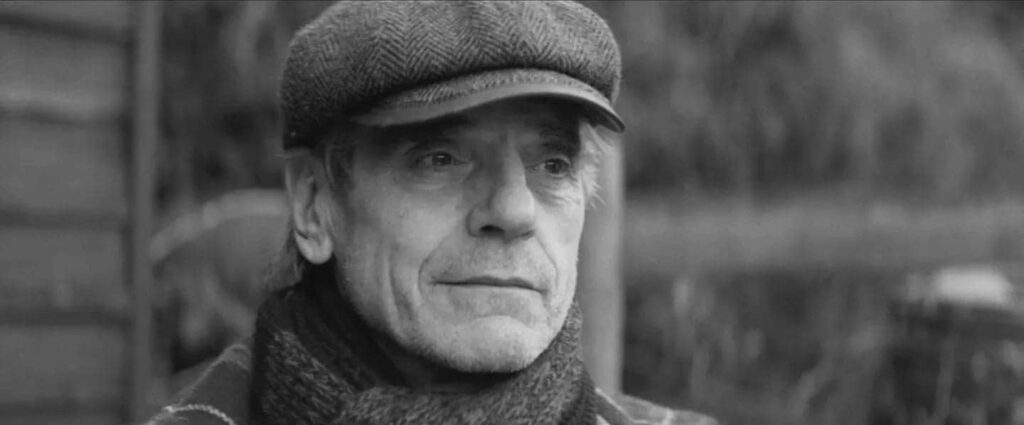
–Who is Stuart Rideout?
I’m a Welsh film maker, loving husband, father of two and owner of Meg the dog.
I have a passion for film & filmmaking, storytelling, art, architecture, design, travel and spending time in nature.
I have a simple mantra of ‘Never waste a view’ that I have tried to imbue in my two children (with limited success).
I love watching the sun come up, walking my dog (especially in the rain) and I have a new found passion for cold water swimming (I managed a swim in the sea every week throughout the winter).
I love good food, chilled wine and a decent coffee.
My wife would say that I need to be tidier! Every-day is a school day and I’m continually working on my BBQ cooking skills.
I’m also partial to a nice Martini.
–What inspired you to become a filmmaker?
When I was a young child I suffered with a pretty awful stammer that seemed to inhibit my early educational development. As a result, I retreated into my own dream world of comic books and Hammer horror films, which became a slight obsession.
This obsession was further fed by the fact that my grandmother who lived in a small mining town in South Wales called ‘Blaengarw’ was an usherette and cleaner at the local cinema. This meant that whenever I went to stay with her (roughly twice a month) I would go with her to the ‘pictures’ as she called it. This meant that from an early age I was exposed to some amazing films on the big screen such as various Spaghetti Westerns, Planet of the Apes, James Bond etc.
I’d watch a double bill on the Friday evening then go and help my grandmother as she cleaned the cinema on the Saturday morning. This allowed me to go into the projection room and look at the huge 35mm projectors as well as the spools of answer prints.
I guess this, combined with my love of drawing, helped shape the very early stages of my visual sensibility.
I then saw the film JAWS and that really sealed it for me – I became doubly obsessed with film making and sharks.
–Do you think the cinema can bring a change in the society?
Yes, I think film is a very powerful medium that can evoke change.
Ironically JAWS, apart from shaping the very nature of the modern summer blockbuster, also shaped the way in which the world perceived sharks in a very negative sense.
Peter Benchley who wrote JAWS held large regrets about writing the novel because of the negative effects it had on the conservation of sharks and oceanic creatures. Benchley became a huge advocate of shark protection and later travelled the world giving lectures and making documentaries on ocean life.
Drawing on my own experience I think film is perfect art-form to inspire and engage the imaginations of young people.
One of the best experiences I have had with my short film ‘I Wish for You’ is when a teacher friend of mine showed it to her class of eight and nine year olds.
Their enthusiasm and engagement with the film really blew me away.
They each wrote to me laying out how and why the film moved them, we then did a question and answer session and I found their passion for the film incredibly moving and their engagement for the film’s subject was truly inspirational.

–What would you change in the world?
This is a huge question, so I will try keep my answer fairly simple.
I’m very interested in our relationship with nature or putting it slightly differently our ‘lack’ of a relationship with nature.
The emergence of Covid 19 should be a pretty loud wakeup call for our relationship with the natural world.
It shows us clearly that human kind is out of step with nature and we take the natural world very much for granted. I genuinely feel that we need a pretty radical rethink our relationship with the world around us. It’s everything from something as simple as dropping litter through to the bigger things like farming and the food industry. We need a far better understanding of and relationship with the natural world.
I’m currently working on a virtual reality experience that attempts to help people re-engage with the natural world. I’m trying to tie this in with my cold water swimming experience and use it to help create a calming mindful experience.
I think we have to rediscover our equilibrium with nature, we need to be inspired by it and focus on it and I see technology playing a big part in this.
–Where do you see the film industry going in the next 100 years?
For me the most compelling thing about going to the cinema is the collective experience of watching a fantastic film with other people. When the audience jumps, cheers and cries together – that for me is where the magic is.
When you consider that the Lumière brothers invented the Cinématographe in the late 1800’s which is a little over a 100 years ago and look at where cinema is now where we have virtual production studios, the ability to place a camera virtually anywhere to capture action and the way CGI can create imaginary worlds and incredible characters, then the physical boundaries are endless.
However, in my view the key to great cinema is and always will be brilliant writing and storytelling.

